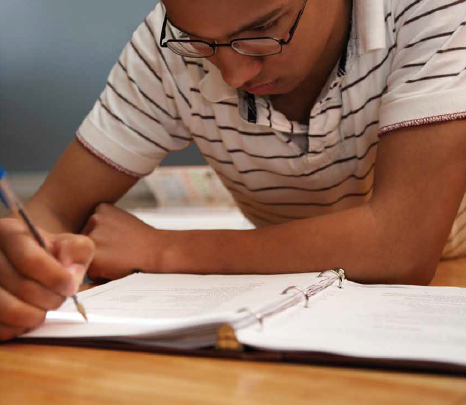Let's Fix School Discipline in California
Page Media

The school-to-prison pipeline is a heartbreaking problem with huge costs to our state. Not only are we paying more in criminal justice costs than it would take to educate every young person, California is losing the creative energy and productivity of too many students – especially students of color.
The legislature is considering taking a huge towards disrupting California’s school-to-prison pipeline. Assembly Bill 420, which requires approval by the Senate and governor, will provide educators the guidance they need to keep more kids in front of a blackboard instead of behind bars.
California issues too many suspensions and expulsions, sending students on unsupervised vacations rather than keeping students in school and learning. In fact, California public schools suspend almost twice as many students as they graduate each year.
If you think that suspensions and expulsions cannot play a major role in sending kids into the criminal justice system, think again. Just one suspension triples a child's likelihood of becoming entangled in the juvenile justice system within one year. A single suspension also makes that child five times more likely to drop out of school. The fact is that harsh punishment like suspensions, which are all-too-easily handed out, is often among the first stops along a pipeline to prison and the unrealized potential of our youth.
And the cost to our state is staggering. Incarcerating just one juvenile costs roughly $200,000 more per year than does educating her.
Let’s consider the role that race plays in determining a student's likelihood of suspension. Young people of color in our state are much more likely to be suspended than white kids for the same behavior. Vague infractions, such as "willful defiance" can include missing a homework assignment or even wearing a hat. In fact, African-American kids are over four times more likely to be suspended than white kids for this largely undefined infraction.
This is California in 2013. It is mindboggling that the color of a child's skin can play such a significant role in the treatment they receive in our schools, and ultimately, in setting the course for their future.
There is one important step we can take towards fairness, justice and safety in 2014, though. AB 420 would bar "willful defiance" suspensions in elementary schools. It preserves educators' ability to suspend older children for "willful defiance," but only as a last resort, after other alternatives have been utilized.
AB 420 leaves in place 23 other grounds for suspension or expulsion, giving educators the discretion they need to maintain discipline. It places appropriate limits, though, on this subjective and overused ground for suspension that is so disproportionately applied to children of color.
"Equal treatment for children in unequal situations is not justice," Governor Jerry Brown stated emphatically in his State of the State speech this year. The Governor's clever turn of phrase depends upon one fact being universally accepted:
Unequal treatment for children in equal situations is also not justice.
Well, said, Governor. Well said.
Jory Steele is the former Education Equity Project Director at the ACLU of Northern California.
